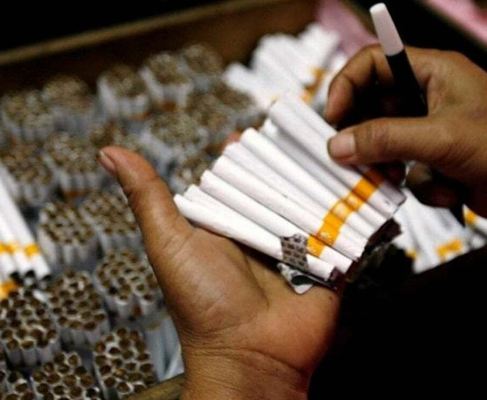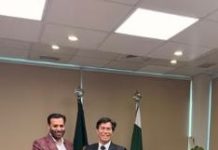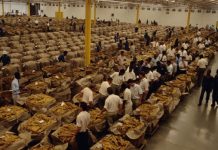ISLAMABAD, MAY 21 /DNA/ – The World Health Organization (WHO) has contradicted claims by multinational tobacco companies regarding the illicit cigarette trade, revealing that the actual figure in Pakistan stands at 23 percent.
“Overall, the illicit trade of cigarettes in Pakistan accounted for 23.1% of the total trade. Locally produced cigarettes without a stamp of the tax authority are considered illicit products and account for 10.4% of the total number of packs,” said WHO study titled “Study on Incidence of Illicit trade of cigarettes in Pakistan: A case study for Islamabad Capital Territory”.
It further said that, in terms of the number of packs with counterfeit tax stamps as a percentage of total packs, it is 1.9%, and smuggled cigarettes account for 10.7% of the total consumption.
The latest report by the world health body has debunked myths and the tactics employed by multinational tobacco companies to evade taxes.
In the past, there had been several studies on the volume of illicit trade in Pakistan but they were conducted before the Track and Trace System was enforced in the country (July 2022). These studies found that illicit trade market in Pakistan ranges from 9 to 17% but they did not estimate the extent of the counterfeit issue, according to the WHO.
The report quoted data from Pakistan Bureau of Statistics (PBS) and said that tax evasion on domestically produced cigarettes in 2015-16 amounted to Rs.53.8 billion. An amount of Rs. 38.9 billion (72.7%) was evaded by the legitimated sector by under-reporting the production and Rs. 14.6 billion (27.3%) was evaded, it added.
“The most effective way to reduce tobacco consumption is to increase the price of tobacco products through higher taxes. In Pakistan, the cigarette industry claims that higher taxes trigger illicit trade, claiming smokers do not quit and opt for non-duty-paid cigarettes because they cost less,” the study said.
The world’s top health body emphasized that the prices of tobacco products in Pakistan should be increased by taxing the tobacco industry.
Anti-tobacco activists are pressing the government to raise tobacco taxes to 70% of the retail price, in line with WHO guidelines, to combat the alarming rate of tobacco consumption particularly among the youth.
Malik Imran Ahmed, Country Head of the Campaign for Tobacco-Free Kids (CTFK), said, “With over 60% of the population comprising youth, it’s crucial for the government to protect them from the ills of tobacco use,” he said, “as the move is expected to generate additional revenue, surpassing Rs 200 billion by year-end,”












